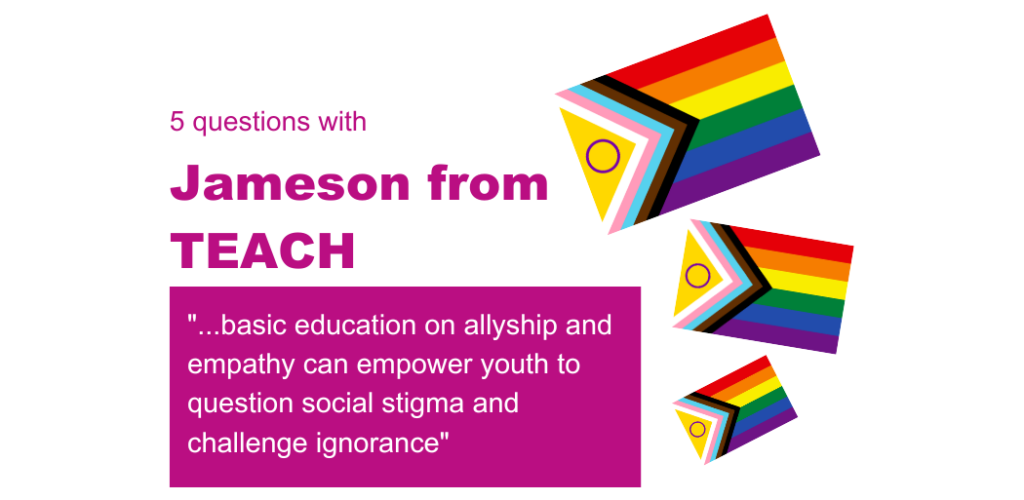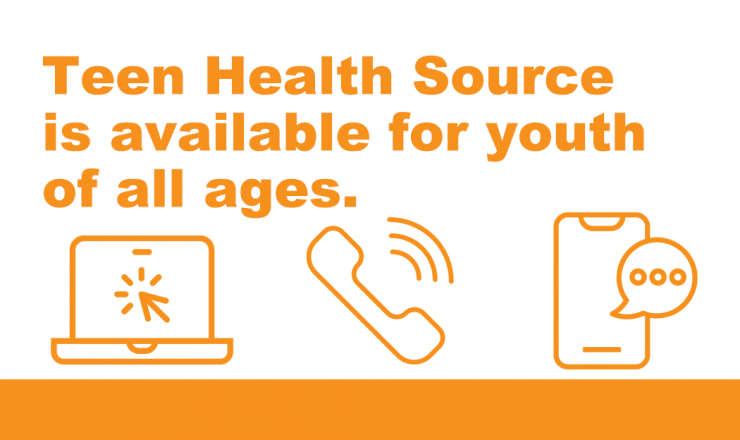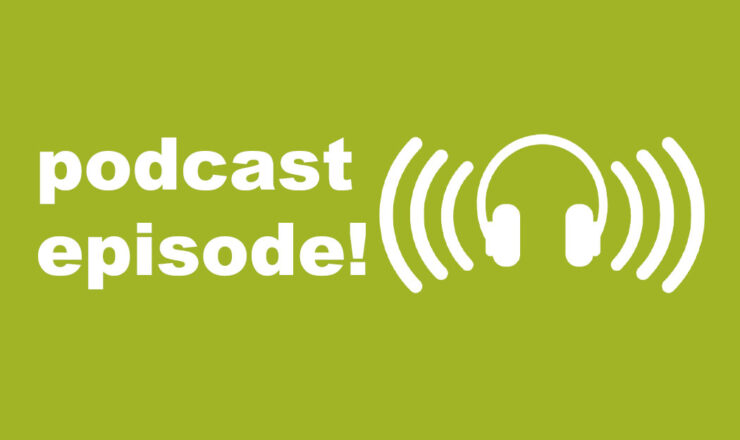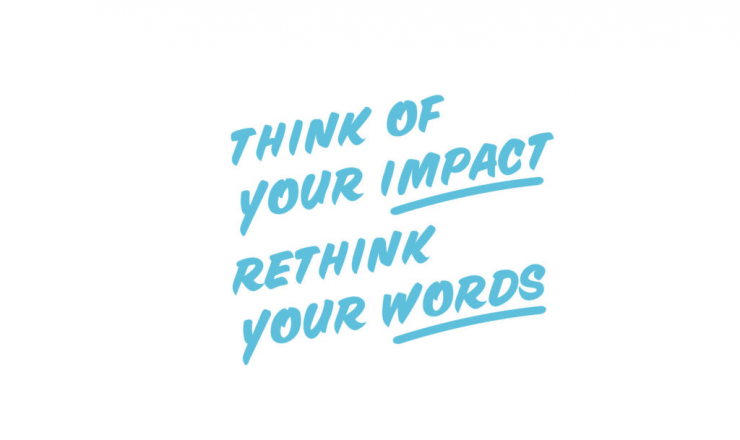

It’s officially Pride month! At Teen Health Source we’re spending the rest of the month discussing topics related to pride including histories of 2SLGBTQ+ activism, how to get involved, and how to keep pride going year-round. We’re starting things off with a Planned Parenthood Toronto volunteer interview for TEACH, a program dedicated to empowering youth educators to lead workshops on issues related to gender and sexuality.
5 Questions is where Teen Health Source volunteers ask 5 questions to people about their unique perspectives on everything to do with sex and gender. In this instalment, we asked a TEACH (Teens Educating and Confronting Homophobia) Program volunteer Jameson about his experiences as a volunteer and his thoughts on how youth can be more involved with combatting gender and sexuality based discrimination.
What prompted you to join a program like TEACH?
My experience volunteering with Teen Health Source, through which I noticed a gap in teens’ health knowledge and confidence, led me to TEACH as it seemed like the perfect opportunity to continue advocacy for youth leadership and self-advocacy. Beyond interacting solely with those in the 2SLGBTQ+ community, I like the idea of reaching out to young people who may have little understanding or misconceptions of what it means to be Queer.
What’s something you’ve learned during your time with the program?
What do you wish other young people knew about homophobia/transphobia/the work you do with TEACH?
What’s one way other young people can help combat homophobia/transphobia?
What’s an exciting resource you think more young people should know about?
A resource I think more youth should be aware of in making schools more inclusive is Rainbow Health Ontario, which has a guide to local services which I have found personally useful and believe can direct inclusive school policy. Also, this webpage offers suggestions for teachers and others in supporting students: https://www.etfo.ca/socialjusticeunion/2slgbtq/2slgbtq-resources
If you have questions about this topic, feel free to contact one of our peer educators. [Link]
For more information on TEACH, or to book a workshop with one of our youth peer educators, click here: [Link]
Last Updated: June 2023

We know it’s hard to access sexual health supports right now. To help, we’re opening up our info line to answer questions for youth outside of the 13-29 age range.

What’s one thing that people don’t talk enough about when it comes to having sex for the first time: Pleasure! Join us for this fun and breezy conversation about some of the myths, worries, and strategies people can use when it comes to having sex for the first time.

Our friends over at SendTheRightMessage.ca have produced a fantastic video that goes over better ways that allies can support their friends and families over pronouns.